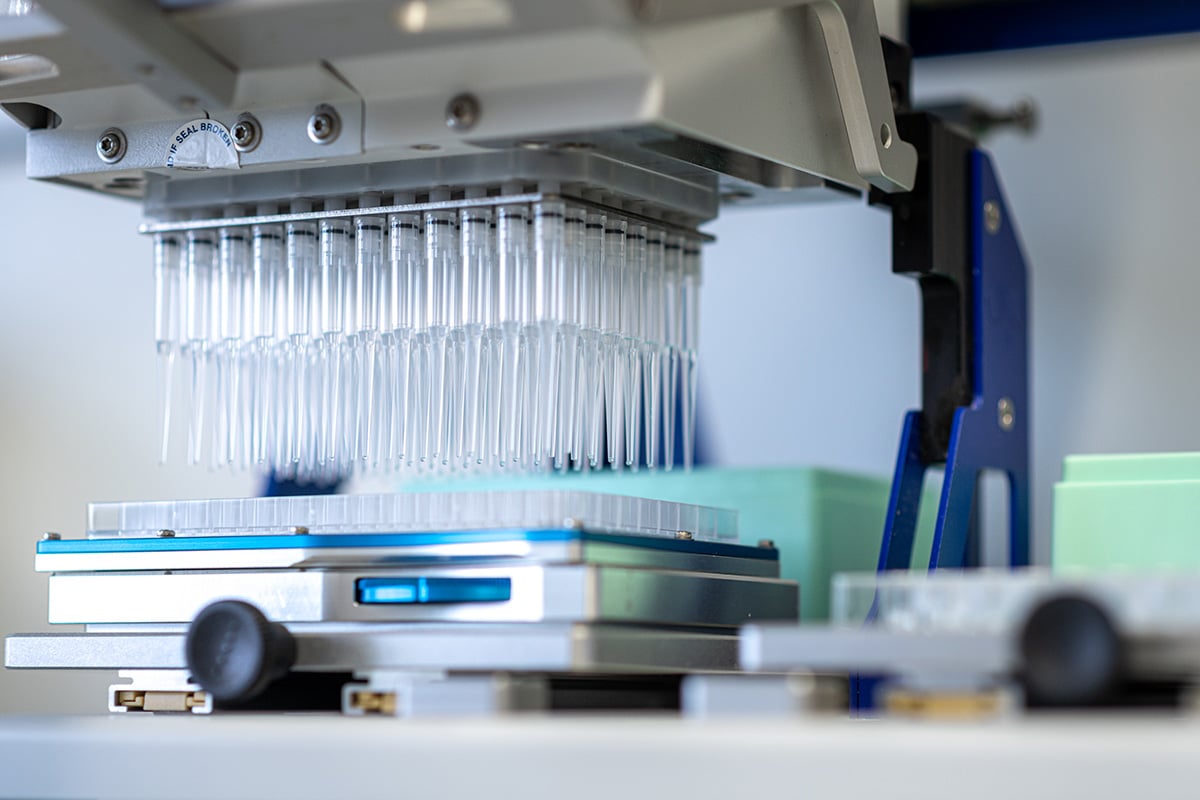Plastic waste from c-LEcta laboratories gets second chance

In the laboratories of c-LEcta, enzyme engineering projects generate a lot of plastic waste during the screening phases. Pipette tips are used during screening, e.g. to test enzyme activity, and some are used only once. Each 96 tips are packed in a polypropylene box. During the peak phases of research projects, up to 10 kilograms of plastic waste per week are quickly generated by tip boxes alone.
An internal project group, which is committed to reducing c-LEcta's ecological footprint throughout the company, will force the task to reduce or recycle the mountains of plastic that accumulate. After extensive research, project manager Hanna Dudek found the Precious Plastic initiative. This is a global network that aims to find a comprehensive solution to the plastic waste problem. They offer access to plastic processing machines, product designs, knowledge about plastics and the industry, or business models for interested parties worldwide. The network also includes a group from Leipzig. Kunststofferei is an open collective working on practical solutions to remove plastic from nature, incinerators and landfills by closing the plastic recycling loop locally in Leipzig.
Contact was quickly made and the Leipzig artists first tested samples and checked whether the lace boxes from c-LEcta's labs were suitable for further processing in the shredder and later as raw material for new things. The tests were positive and so about 50 kilograms of plastic waste could be handed over at the beginning of February. The artists around Jan Knappe have now upcycled their first object from it: a clipboard made entirely of recycled plastic. Hanna Dudek: "Unfortunately, there is no alternative to disposable plastic items for our work in the lab. We are very happy to have discovered a way to put all the plastic waste to a new and useful use."
